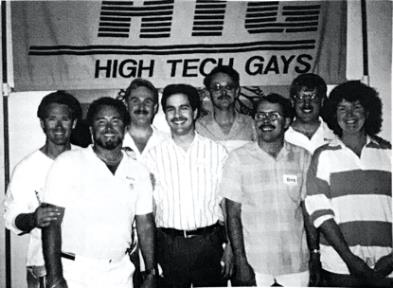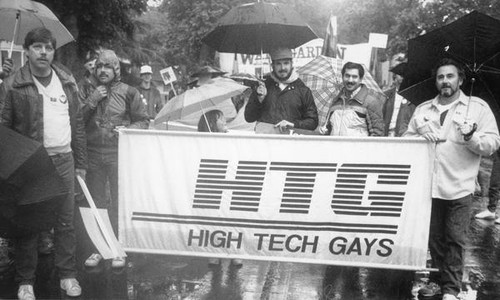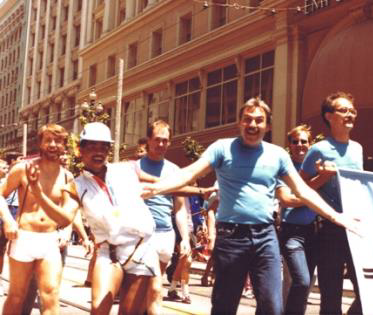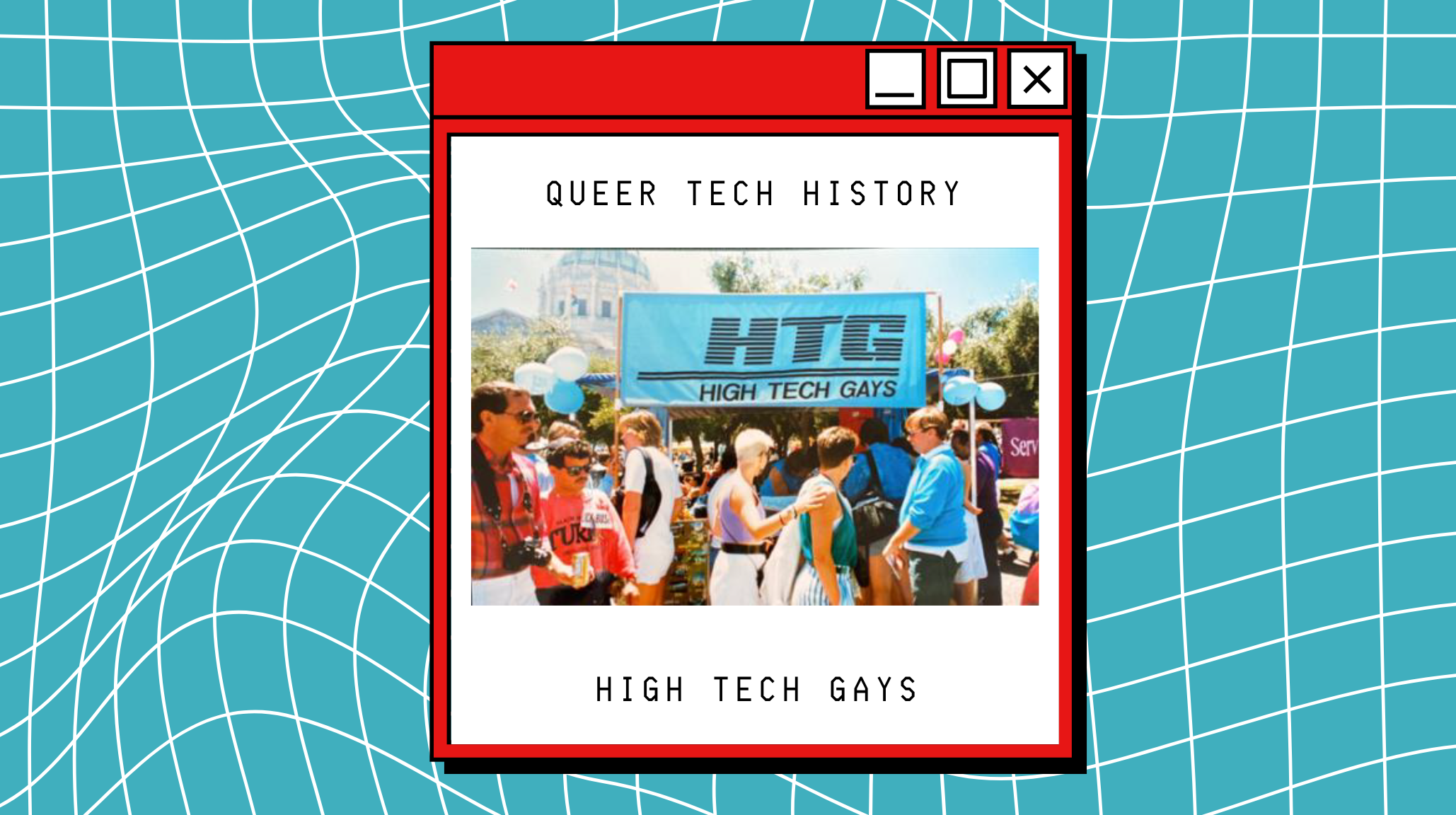In 1984, being gay in Silicon Valley could cost you more than your social life—it could cost you your security clearance, and with it, your entire career. But the people who would challenge that discriminatory policy didn't start with a lawsuit. They started with a potluck.
High Tech Gays began in January 1983 as ten people gathered at the Billy DeFrank Center in San Jose, looking for others like them: gay engineers and scientists navigating an industry where even putting "High Tech Gays" on a return address envelope could jeopardize a career. By March, they'd formalized as an organization. By year's end, 45 people were attending monthly meetings. Within two years, they'd need to rent community centers to fit the 250 people showing up for dinner, guest speakers, and connection.

The growth was exponential and intentional. Ten people in January 1983. Forty-five by that December. Nearly 200 paid members by the end of 1984. By 1985, monthly meetings regularly drew 250 people, so many that finding venues became a logistical challenge. "Little did we know how successful the organization would become and that houses would soon be too small to hold monthly meetings," co-founder Rick Rudy later reflected.
That growth brought power. Media outlets took notice: The New York Times, The Wall Street Journal, The Advocate, the San Jose Mercury News, and the San Francisco Chronicle all covered HTG's work. Political candidates began requesting invitations to speak at monthly meetings because 250 organized, professional voters in the tech industry had become a constituency worth courting. When Rick Rudy was elected to the board of the National Gay and Lesbian Task Force, HTG's local organizing suddenly had national amplification.

The organization leveraged that visibility strategically. While building community through camping trips and theater outings, HTG's Political and Business Action Committee was writing letters to every major Silicon Valley employer, demanding they add sexual orientation to their non-discrimination policies. Some companies responded with hostility. Others began to change their policies.
In June 1984, High Tech Gays became co-plaintiffs in a federal class action lawsuit against the Defense Industrial Security Clearance Office (DISCO). The policy: anyone who had engaged in "homosexual activity" within the past fifteen years was automatically flagged for denial of high-level security clearances. DISCO also subjected Gay and Lesbian applicants to more extensive investigations than their straight counterparts. For tech workers in Silicon Valley's defense industry, fifteen years of your life could disqualify you from your career.
In 1987, a District Court ruled in HTG's favor. The Department of Defense appealed.

Three years later, the Ninth Circuit reversed the decision. The court ruled that "homosexuality is not an immutable characteristic; it is behavioral" and that "homosexuals are not without political power." That same year, Rick Rudy died from AIDS complications.
It took five more years for the policy to change. HTG continued organizing through those years, even as the AIDS crisis devastated the community they'd built. In 1995, President Clinton issued an executive order prohibiting discrimination based on sexual orientation in security clearances.
High Tech Gays disbanded in 1998, fifteen years after ten people gathered at the Billy DeFrank Center. What started as a potluck became a blueprint: social connection builds the trust and resources needed for sustained activism. When people with institutional access organize collectively, they can push for change from both inside and outside the system.
References & Readings
HTG Newsletter Archive
High Tech Gays: A Silicon Valley Social & Gay Rights Organization 1983 to 1997










